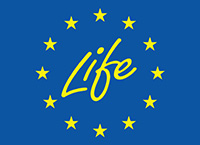Technical workshops future CAP – From food security to solidarity & rural areas
On 16-17 May 2024 the European Commission organised the last technical workshop for Solidarity and Rural Communities in the next Common Agricultural Policy (CAP). As IFOAM Organics Europe, we were present at all five technical workshops and our guest speakers presented at four of them. Below we summarise the workshops.
The technical workshops are not over. Their inputs will now be examined by the Commission who will feed these into their reflections on the next CAP.
While discussions on the CAP post-2027 in the Commission are ongoing, we will make sure the organic movement is present in these reflective stages. Our Interest Group of Organic Farmers is already working on the CAP post-2027.
A summary of the CAP technical workshops
On resilience, Erika Olsson, President of the Swedish Organic Farmers Association (Ekologiska Lantbrukarna) presented how organic farms are resilient to environmental and economic crisis.
During the food security workshop, IFOAM Organics Europe presented its view on food security, detailing that organic and other agroecological approaches are the best way to guarantee long-term food security. Read TP Organics’ briefing on food security for more information. The United Nations’ Food and Agricultural Organization (FAO) presented its four pillars of food security and recalled Europe’s role in global production and consumption – both in economic terms and in light of the climate and environmental crises.
The sustainability workshop was the opportunity to welcome the European Alliance for Regenerative Agriculture (EARA) to the Brussels bubble. They presented their vision for the next CAP. Discussing how to reward farmers engaged in sustainable methods of production better in the next CAP, IFOAM Organics Europe presented the mechanisms of organic certification. This was a useful reminder as not many in Brussels are familiar with organic certification and the regular control and reinforcement it has in place to ensure trusted products.
During the performance and governance workshop, participants discussed CAP simplification and assessing farms’ sustainability without adding extra burdens for farmers. Agroecology Europe presented their analytical frameworks specifically designed to assess where a farm is on the trajectory of transition towards agroecology, the OASIS system. At this workshop, participants debated the crucial question of the CAP’s governance and which changes it needs.
Finally, the workshop on solidarity and rural communities took a broader look of the CAP, going beyond agricultural communities looking at those who operate in rural areas. Of course, many presentations focused on farmers (especially the demographic decline, its drivers and implications) but also looked at the relationships between farmers, agriculture and other key sectors of rural economy (such as tourism, services, etc). The workshop’s participants particularly emphasised the need for public services in rural areas. During this workshop, IFOAM Organics Europe presented biodistricts, namely the Cilento biodistrict which came to be thanks to the region’s organic farmers creating a project gathering all rural actors in the area (mayors, citizens, shops, local markets, etc). This example was the opportunity to show the role of organic in the sustainable development of rural areas, benefiting to the environment, farmers, citizens and the local economy.
If you are interested in this topic, have a look at the EU organic movement’s manifesto for the next political mandate – reimagining the Common Agricultural Policy is one of its priorities.
Information for IFOAM Organics Europe’s members
IFOAM Organics Europe’s members find all information about the technical workshops in the Civil Dialogue Groups space on the member extranet. If you want to get more details, please check our civil dialogue groups extranet space > meeting documents > CAP > technical workshops.
Should you have any questions regarding Civil Dialogue Groups and/or would like to share relevant information or topics to cover in upcoming CDGs please write to [email protected].
Are you an IFOAM Organics Europe member who does not have access to our member extranet yet? Contact [email protected] for access rights (issues).

The work of IFOAM Organics Europe on this topic is co-financed by the LIFE programme of the European Union, under the Climate, Infrastructure and Environment Executive Agency (CINEA). This page only reflects the views of the authors and its sole responsibility lies with IFOAM Organics Europe. The CINEA is not responsible for any use that may be made of the information provided.

